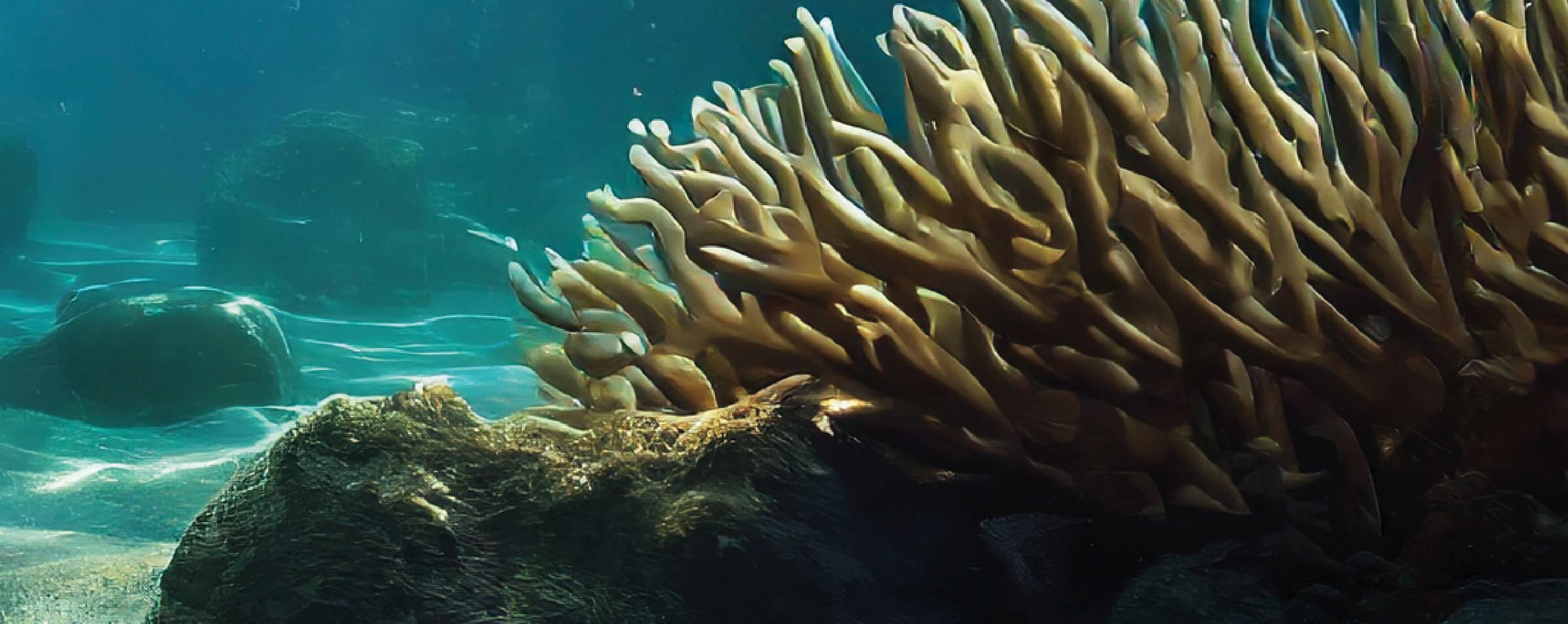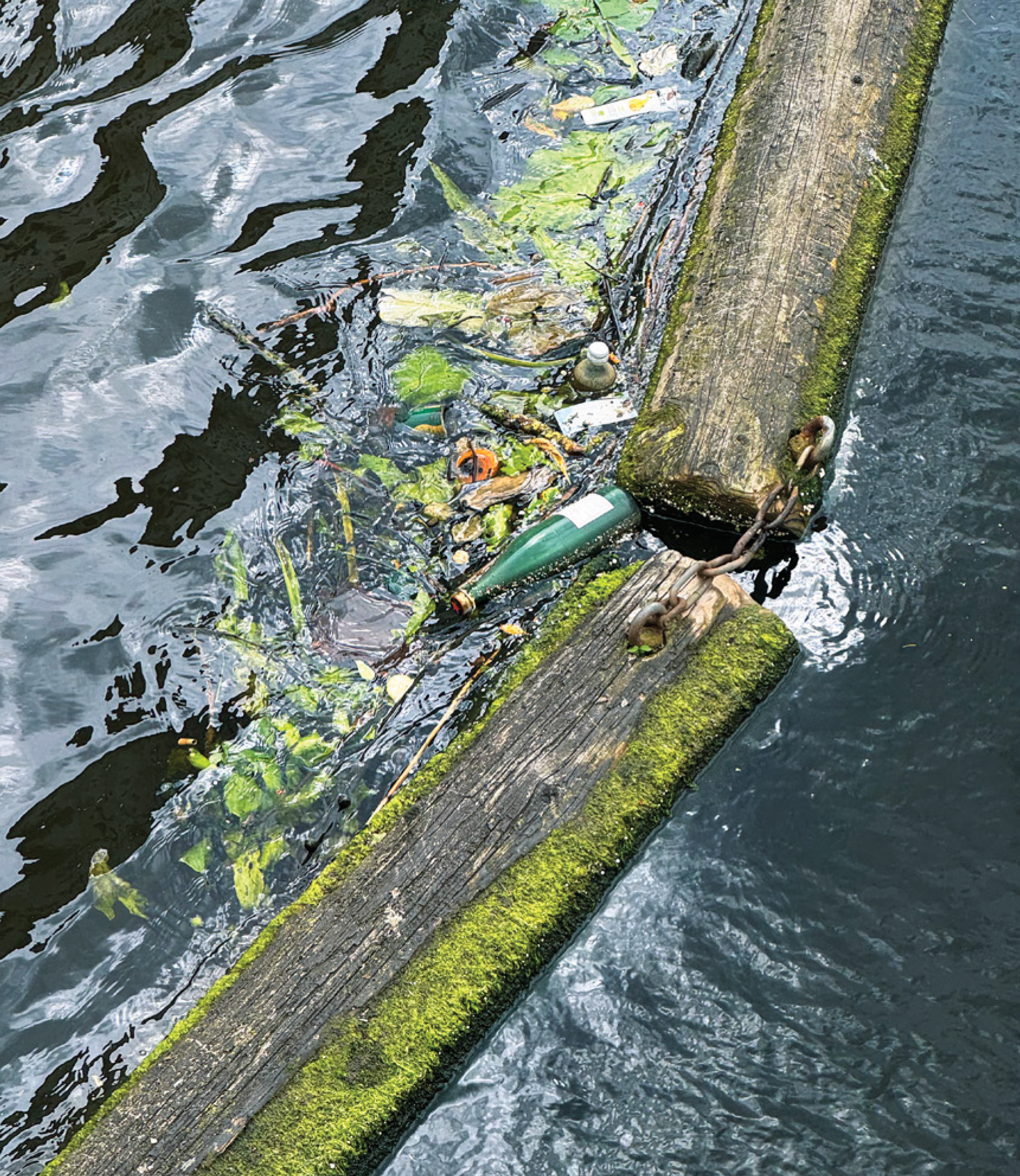
4 minute read
Compressed air bubbles for cleaner waters
The idea is as simple as it is brilliant. By placing a perforated pipe at the bottom of rivers and canals and pumping compressed air through it, a rising “bubble wall” pushes plastic waste to the surface, where it can be easily collected. KAESER’s energy-efficient rotary screw compressors play a crucial role in this process. Moreover, the powerful compressed air bubble barrier does not disturb aquatic life or shipping.
So how did this idea originate? Three friends and passionate sailors – Saskia Studer, Francis Zoet, and Anne Marieke Eveleens – were frustrated by the amount of plastic waste they found themselves encountering on their sailing trips. While researching the issue, they discovered that 1.8 million tonnes of waste are generated each year, with 80 percent of it entering our seas and oceans through rivers and canals. They realised that tackling these “plastic highways” could significantly address the problem. But the question remained: how?
One day, while enjoying a cold beer together, they observed the bubbles rising in their glasses and wondered if air bubbles could also entrain something in a liquid and carry it to the surface. That day, an idea was born. Together with Philip Ehrhorn, they founded The Great Bubble Barrier® startup.

Green challenge
At company headquarters next door to the Maritime Museum in Amsterdam, project engineer Erwin Schuitemaker explains how the project began and how winning the “Green Challenge” in the Netherlands’ Postcode Lottery accelerated its development. “After conducting preliminary tests at the water laboratory Deltares, we built a 10-metre prototype in 2017. We also tested it at a wastewater treatment plant in Wervershoof to study the effectiveness of the bubble barrier concept. Later that year, we conducted a successful 180-metre pilot project in the river IJssel, a Dutch distributary of the river Rhine. In 2018, we won the Postcode Lottery’s “Green Challenge”, one of the world’s largest competitions in sustainable entrepreneurship. We were chosen as the winner by an expert jury from over 800 entries. The prize included funding and a six-month expert coaching programme to accelerate the development of our product and company. In November 2019, the first permanent bubble barrier was ready for use in one of Amsterdam’s many canals. This was followed by projects in Katwijk (Netherlands), on the River Ave near Vila do Conde in Portugal, and the latest project in Harlingen (Netherlands), making the Wadden Sea, a UNESCO-protected area, much cleaner. Naturally, we have also grown significantly as an organisation, and our team now comprises 17 employees, including trainees.”

Combating pollution at the source
“With the bubble barrier, we can capture 86 percent of floating waste,” explains Erwin Schuitemaker. “The pipe is placed diagonally in a canal or river, where rising air bubbles carry the waste to the surface. The angled arrangement and the natural flow of the water bring the plastic to the edge of the water, where it is then collected and removed. In just one canal in Amsterdam alone, we remove more than 80 kilos of waste from the water each month, consisting of approximately 15,500 pieces of debris ranging in size from 1 mm to 1 metre. In 2020, the “Plastic Soup Foundation” and a team of volunteers began analysing the waste collected by our Bubble Barrier Amsterdam®.” Research is also being conducted in Harlingen by Wageningen University & Research. “By knowing which types of waste are most common and where they come from,” he continues, “we can ultimately tackle the problem at its source by discussing alternatives with the manufacturers and users of these products.”

Leading role for KAESER
“Compressed air is a crucial component of our work. When selecting a compressor supplier, we sought a partner that prioritises sustainability and energy efficiency,” emphasises Erwin Schuitemaker. “We also needed compressors capable of withstanding the challenging conditions in the field. In all of our projects, including those in Portugal, KAESER rotary screw compressors provide a powerful bubble barrier day in, day out, helping us to remove a significant amount of plastic waste from rivers and canals.”
When asked about future projects, Erwin Schuitemaker responds: “Our goal is to ultimately rid all rivers and canals in Europe and the rest of the world equally of plastic waste. An additional benefit is that the clean air bubbles can increase oxygen levels in the water, which can improve the ecosystem and prevent the growth of toxic blue-green algae.”




